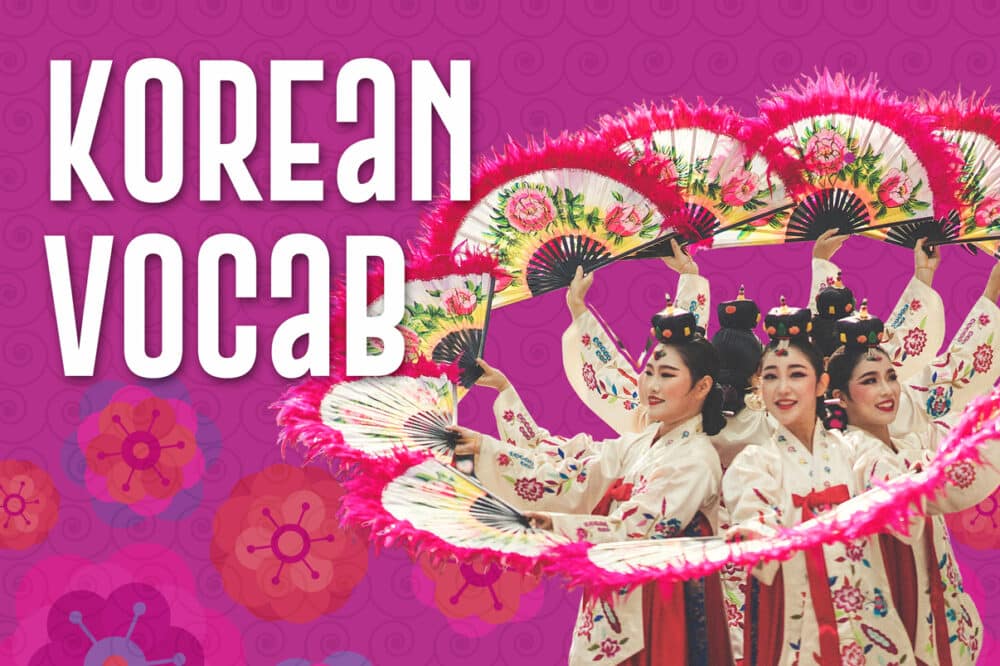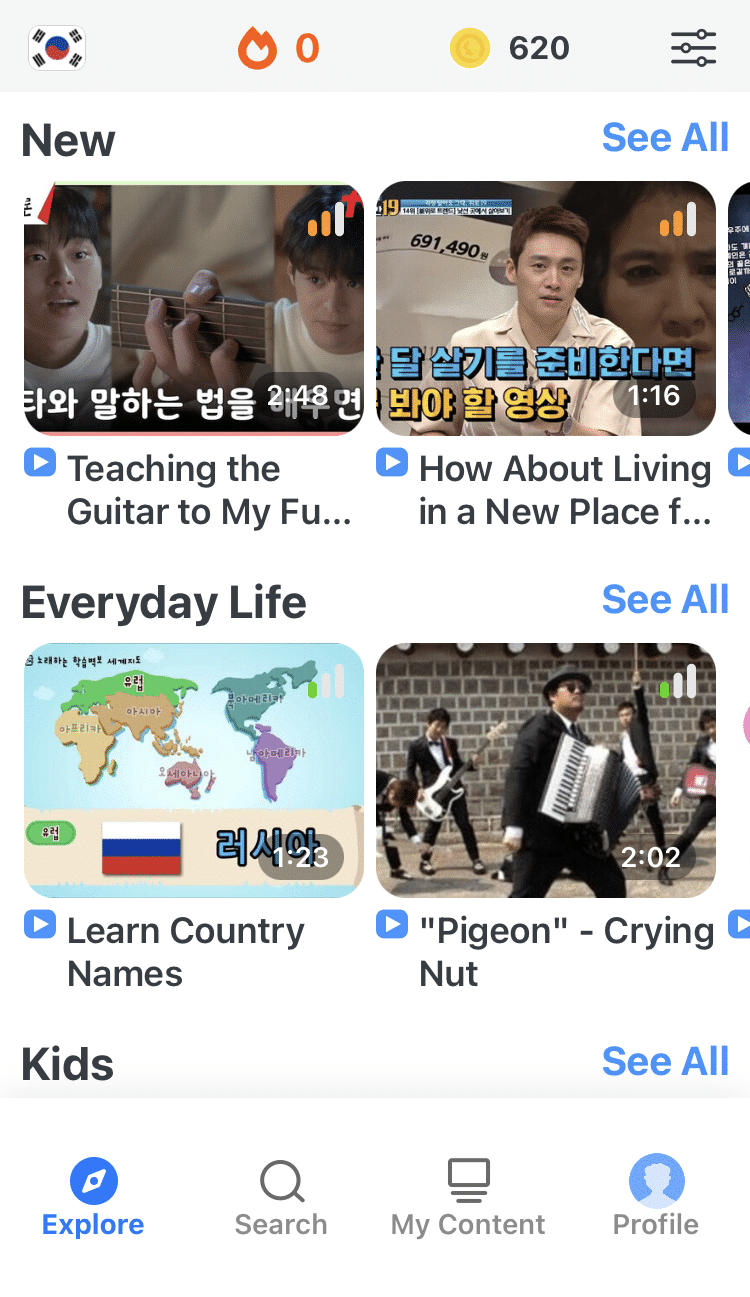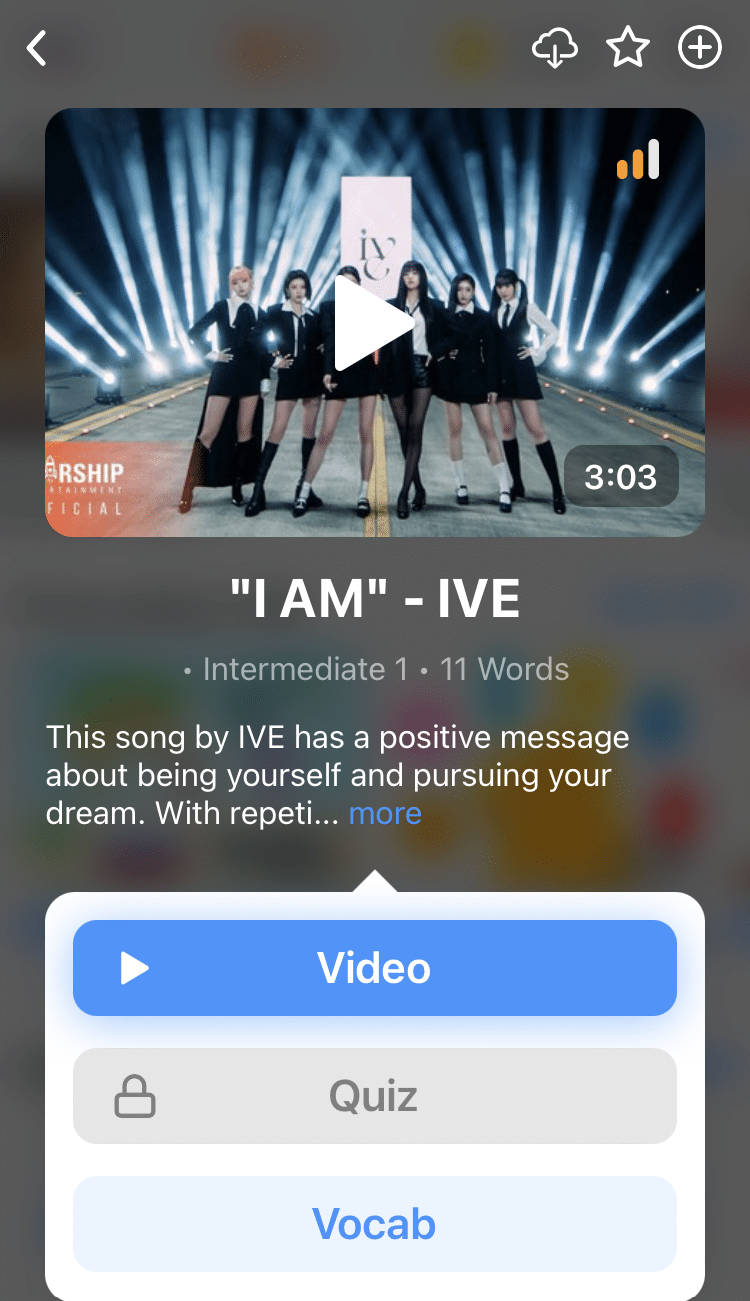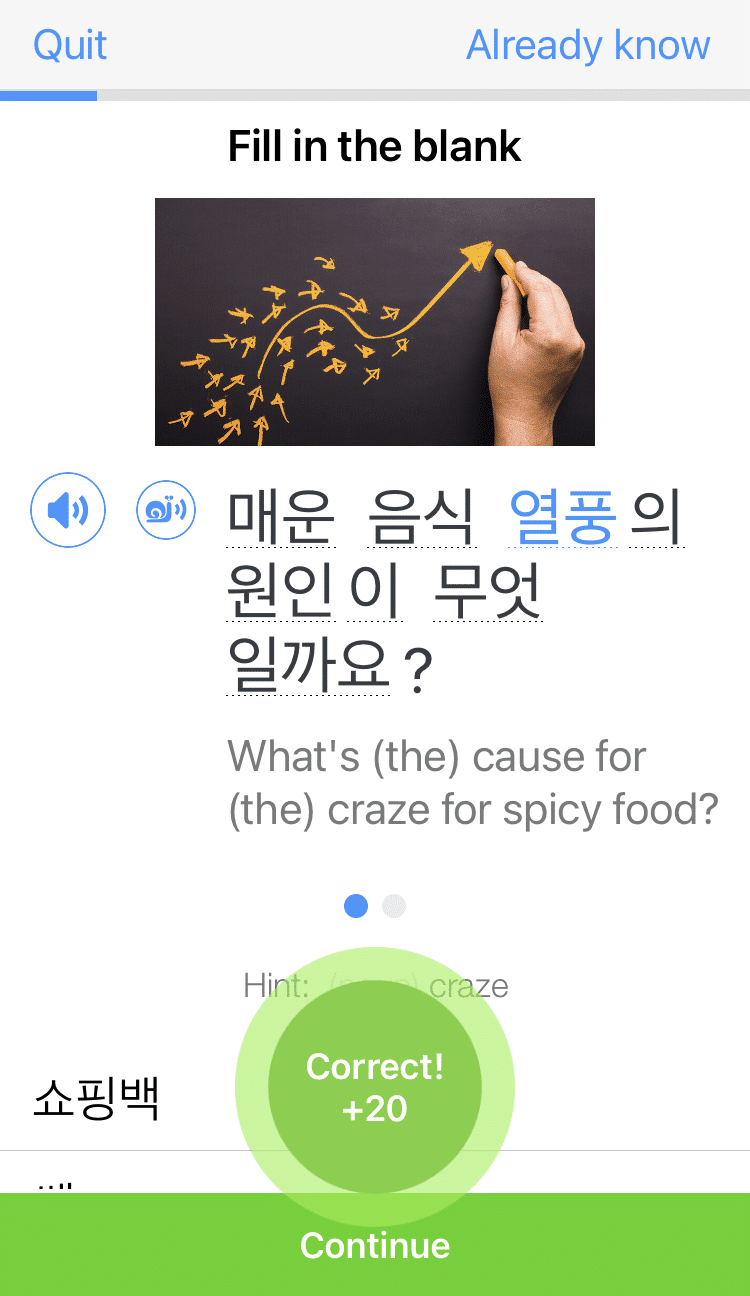
150 Core Korean Nouns
Need to start filling up your Korean vocabulary bank?
This list contains 150 must-know nouns from the language that’ll serve as a great foundation for the rest of your studies.
While 150 might sound like a lot, you’ll probably notice patterns between words that can make memorization easier.
Plus, there are plenty of words that are just Korean transliterations of English words!
Contents
- People
- Family
- Professions
- Transportation
- Places
- Media and Technology
- Food
- Body
- Emotions
- And One More Thing...
Download: This blog post is available as a convenient and portable PDF that you can take anywhere. Click here to get a copy. (Download)
People
There are over 50 million people living in Korea today. A big population for a relatively small country, and all the more reason you should learn the nouns associated with people.
Knowing these nouns will get you by in a lot of social situations that require identification.
Korean English Romanization 남자 man nam-ja 여자 woman yuh-ja 소년 boy so-nyun 소녀 girl so-nyuh 친구 friend chin-gu 아기 baby ah-gi 어린이 child uh-ri-nii 십대 teen ship-dae 어른 adult uh-reun 아줌마 / 아주머니 middle-aged woman ah-joom-ma / ah-joo-muh-ni 아저씨 middle-aged man ah-juh-ssi 노인 / 어르신 elderly person no-iin / uh-reu-shin 대선배 / 선배 senior dae-sun-bae / sun-bae 후배 junior hu-bae 고객 customer / client go-gaek 낯선 사람 stranger nat-sun sa-ram 관계 relationship gwan-geh
Family
Family is a big deal in Korean culture. The close bonds between family members are seen as hallmarks of societal success.
There are a lot of special names and titles for Korean family members, and I’ll be the first to admit that memorizing all of them can be difficult.
The titles can differ depending on which side of the family a person comes from, and whether or not they’re older or younger than you or someone else.
That said, knowing at least these nouns will definitely get you some brownie points with the fam!
Korean English Romanization 가족 family ga-jok 아이들 children ah-ii-deul 아들 son ah-deul 딸 daughter ddal 형제 brothers / siblings hyung-jeh 자매 sisters ja-meh 부모님 parents bu-mo 어머니 mother uh-muh-nii 아버지 father ah-buh-ji 남편 husband nam-pyun 아내 wife ah-nae 조부모님 grandparents jo-bu-mo 사촌 cousin sa-chon 손주 grandchild son-ju
Professions
These are helpful nouns to know if you’re interested in learning about (or joining) the Korean workforce.
Korea is a popular hub for international employees, so it’s definitely an option to consider if you’re looking to work abroad.
Korean English Romanization 직업 career jih-geop 일 work il 학생 student hak-seng 선생님 teacher sun-saeng-nim 의사 doctor ui-sa 간호사 nurse gahn-ho-sa 요리사 chef yo-rii-sa 변호사 lawyer byun-ho-sa 과학자 scientist gwa-hak-ja 경찰관 police officer gyung-chal-gwan 운동 선수 athlete oon-dong sun-soo 배우 actor bae-woo 예술가 artist yeh-sul-ga 미용사 beautician mi-yong-sa 기관사 engineer gi-gwan-sa 정비사 mechanic jung-bii-sa 판매원 salesperson pahn-mae-won
Transportation
Trains, buses, cars—oh my!
Cars may remain the most common mode of vehicle-based travel in Korea, but the expansive public transportation system is certainly a thing to behold.
In fact, if you ever travel to Korea, I highly recommend you just bask in the convenience, speed and cleanliness of the available public transport modes.
Korean English Romanization 자동차 car ja-dong-cha 버스 bus buh-seu 택시 taxi taek-shi 기차 train gi-cha 배 ship / boat bae 비행기 airplane bi-haeng-gi 자전거 bicycle ja-jeon-guh 오토바이 motorcycle oh-toh-ba-ii 역 train station yuhk 버스 정류장 bus stop buh-seu jung-nyu-jang 공항 airport gong-hahng 도로 road doh-ro 거리 street guh-rii 승객 passenger seung-gek 운전수 driver oon-jun-soo 티켓 ticket tee-ket 교통 traffic gyo-tong
Places
Sure, you can simply call most things on this list a “building,” but knowing just that noun won’t get you far in navigating a Korean town or city.
So make sure you know these nouns for common places you might come across!
Korean English Romanization 집 house jiip 도시 city doh-shi 시골 countryside shi-gol 학교 school hak-gyo 식당 restaurant shik-dang 사무실 office sa-mu-shil 가게 store ga-geh 시장 market shi-jang 쇼핑몰 shopping mall sho-piing-mol 병원 hospital byung-won 약국 pharmacy yak-gook 경찰서 police station gyung-chal-suh 은행 bank eun-haeng 미술관 art gallery mi-sul-gwan 공원 park gong-won 교회 church gyo-hwae 극장 theater geuk-jang 노래방 karaoke no-rae-bang 호텔 hotel ho-tel 카페 café ka-peh
Media and Technology
Whether it’s the newest K-pop music video or the next household cleaning robot, Korea is very big on trends in both media and technology.
And these trends are quick to get picked up. With a super-fast internet connection and high digital immersion among the population, it’s no wonder that communications can reach the masses so easily.
You can also use technology to help you study Korean! The language learning platform FluentU, for instance, helps you learn Korean vocabulary, grammar and cultural nuances in context.
FluentU takes authentic videos—like music videos, movie trailers, news and inspiring talks—and turns them into personalized language learning lessons. You can try FluentU for free for 2 weeks. Check out the website or download the iOS app or Android app. P.S. Click here to take advantage of our current sale! (Expires at the end of this month.)
And those are all good reasons to learn some of the vocabulary related to technology and media.
Korean English Romanization 전자 공학 electronics jeon-ja gong-hak 기술 technology gi-sul 텔레비전 TV tel-leh-bii-jeon 인터넷 internet een-tuh-net 컴퓨터 computer kum-pyoo-tuh 노트북 laptop no-teu-book 전화기 telephone jun-hwa-gi 스마트 폰 smartphone seu-ma-teu pon 메세지 message meh-seh-ji 카메라 camera ka-meh-ra 소식 news so-shiik 음악 music eu-mak 영화 movie yung-hwa 라디오 radio ra-dii-oh 광고 commercial gwang-go
Food
Korean cuisine is continuing to rise in popularity, what with its reputation for being healthy, unique and just plain delicious.
If you haven’t tried any Korean food yet, you’re missing out on some fantastic experiences your taste buds will cherish.
And whether you’re going to a Korean restaurant or the local Korean supermarket, you’re going to have to know some basic food vocab to get by.
Korean English Romanization 음식 meal eum-shiik 쌀 / 밥 rice ssal / bahp 빵 bread bbang 물 water mul 쥬스 juice ju-seu 술 alcohol sul 김치 kimchi gim-chi 채소 / 야채 vegetables chae-so / ya-chae 고기 meat go-gee 생선 fish saeng-sun 과일 fruits gwa-eel 반찬 side dish ban-chan 사탕 candy, sweets sa-tang 디저트 dessert dee-juh-teu 아침밥 breakfast ah-chiim-bahp 점심 lunch jum-shiim 저녁 dinner juh-nyuk 간식 snack gan-shiik
Body
It isn’t just a matter of pointing out your head, shoulders, knees and toes.
If you’re in Korea, knowing how to say the body parts is vital for many situations, primarily those that are medical in nature. You wouldn’t want the doctor looking into your ears when you have a broken arm!
Korean English Romanization 머리 head muh-rii 얼굴 face eol-gool 눈 eye nun 코 nose ko 입 mouth iip 귀 ear gwi 어깨 shoulder uh-kkae 가슴 chest ga-seum 등 back deung 위 stomach wii 팔 arm pahl 다리 leg da-rii 발 foot bahl 손 hand sohn
Emotions
In Korean and any other language, it’s crucial to know how to communicate your thoughts and feelings.
So you should definitely learn the words for some of those everyday sentiments you have.
Korean English Romanization 생각 thought saeng-gak 감정 emotion gam-jeong 사랑 love sa-rang 싫음 dislike, disgust shi-reum 배고픔 hunger bae-go-peum 기쁨 joy gi-bbeum 흥분 excitement, agitation heung-bun 재미 fun jae-mi 놀라움 surprise nol-ra-woom 슬픔 sadness seul-ppeum 걱정 worry geok-jeong 실망 disappointment shil-mang 두려움 fear du-ryuh-oom
This is a good first taste of the Korean language, and there’s so much more to look forward to. Asking for English for every word gets tiring quickly, so now you won’t have to!
Sure, it’s a pretty big list that’ll keep you busy, but you’ll get all these words down in time. Soon enough, you’ll be moving on to learn hundreds more and move into the thousands!
To get you motivated, here’s one more word that’s used wish people good luck: 화이팅 (hwa-ii-ting), which means “fight on!”
Download: This blog post is available as a convenient and portable PDF that you can take anywhere. Click here to get a copy. (Download)
If you enjoyed this post, you're already halfway to having the time of your life learning Korean with FluentU!
FluentU makes it possible to learn with K-pop videos, funny commercials, entertaining web series and more. Just a quick look will give you an idea of the variety of FluentU videos on offer:
FluentU really takes the grunt work out of learning languages, leaving you with nothing but engaging, effective and efficient learning. It's already hand-picked the best videos for you (which are organized by level and topic), so all you have to do is simply choose any video that strikes your fancy to get started.
Each word in the interactive captions comes with a definition, audio, image, example sentences and more.
Access a complete interactive transcript of every video under the Dialogue tab, and easily review words and phrases from the video under Vocab.
You can use FluentU’s unique Quiz Mode to learn the vocabulary and phrases from the video through fun questions.
FluentU keeps track of what you're learning, and tells you exactly when it's time for review, giving you a 100% personalized experience.
Review sessions use video context to help embed the words in your memory.
Start using the FluentU website on your computer or tablet or, better yet, download the FluentU app from the iTunes or Google Play store. Click here to take advantage of our current sale! (Expires at the end of this month.)
And One More Thing...







